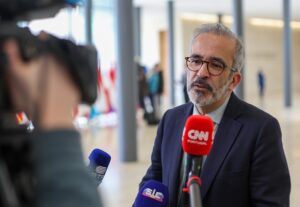As we are fast approaching what many consider one of the most financially draining times of the year – dare I say it, Christmas! – already media promotions, shops and adverts of the new and wonderful must-have latest items are being promoted, talked about and, inevitably, desired! Cost is never mentioned until your child is obsessed! However, in a world led by consumerism, understanding the true value of money is of the utmost importance.
What does this teach our children about the real world and money? Many households and schools avoid talking about money with children and it can be a taboo subject: deemed as not appropriate! When in fact, teaching our children to be financially literate will be one of the most essential life skills that they will need and will most definitely utilise.
Research shows that financially astute children of all ages do well in Mathematics and subjects like Business Studies, as they have already a learnt understanding and are eager to develop this.
Money should be an open topic, talked about and discussed with clarity so that children can understand how and why, as a family, you spend money and the collective values that you have in relation to its expenditure.
Start within the home by giving pocket money. Even from a young age, this can help children observe the value of saving and track, in real time, how long it takes to save for a much-wanted toy or game. The achievement of saving is very rewarding.
Older children may have more money as pocket money and allowed to manage some of their everyday finances, such as paying for snacks, school lunches or weekend activities. This can be achieved through having their own physical money, bank cards or even apple pay. They can even link their accounts to budgeting apps that help them prepare for the next step, be it further education or the world of work.
As a family, teach and show the importance of value in what is bought. Yes, we may live in a society of over consumption, where materialism is rife. However, showing how to value something or being careful with what is spent is not being mean. It is just good financial literacy. Encourage your children to question what makes something so much more expensive than its competitor, to look for value and to help the whole family get the most for their money.
Encourage your children to earn their own money from different resources from an early age. This can be by way of earning extra money for washing the family car every week, having a part-time job or even selling their unwanted items to create revenue online. All are excellent ways for children to be aware of and begin to understand financial literacy.
Schools should also encourage and use real-life money scenarios, irrespective of the curricula used throughout a child’s schooling – from setting up shops and cafes in Pre-Reception to looking closely at how to calculate various types of interest, investigating forms of currency and budgeting strategies during secondary school. Research shows us that these are the types of lessons that students, irrespective of their mathematical ability, are most engaged in.
Giving back to society and understanding socio-economic issues is also a vital part of teaching children to become financially literate. Children of all ages very astutely and quickly understand their family’s place in the financial world by comparison to their peers or other members of their family.
However, within the consumer society in which one now lives, it can be problematic for children to acknowledge or show gratitude for what they have when the latest reality personality is posing in a super car in a mansion.
It is us, the parents and educators, who must underpin our children’s understanding of money and gratitude for our daily lives, whilst, at the same time, explaining and reinforcing true values. The intrinsic importance of donating to charities, raising money for the less fortunate or helping for no monetary reward should never be overlooked.
“As parents and educators, we must do all we can to empower our children to become financially literate in this ever-evolving money-grubbing world” – Penelope Best
By Penelope Best,
International Education Consultant




















